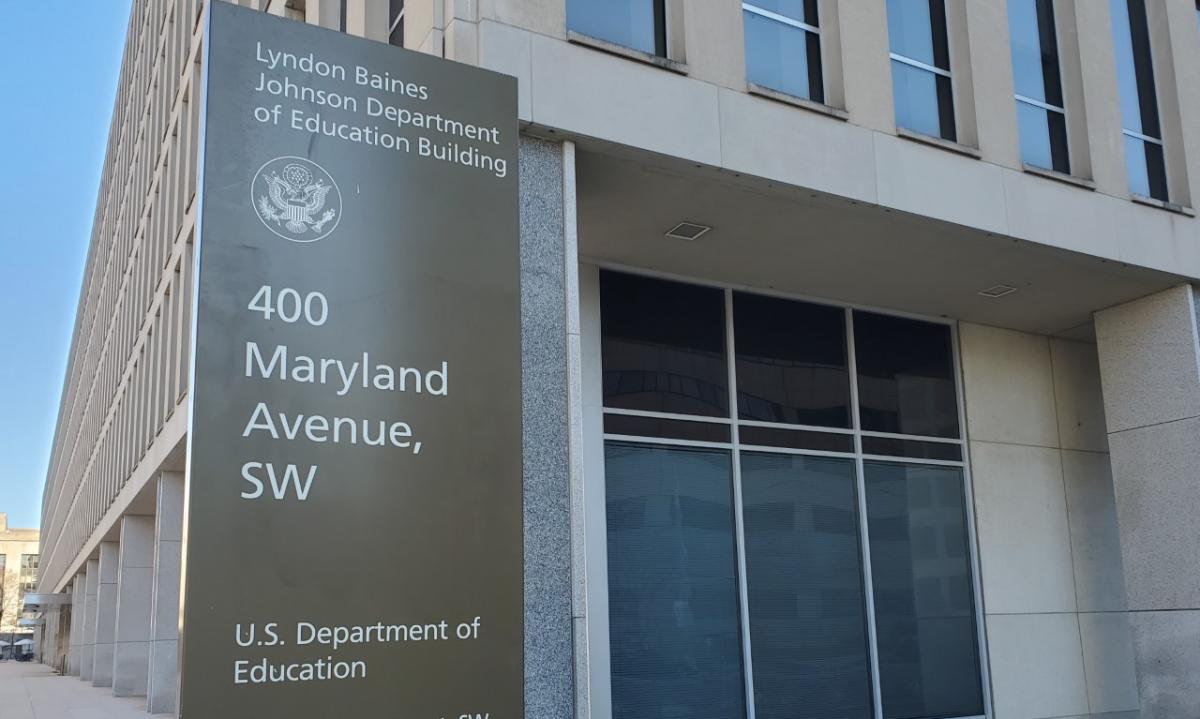Education Department grants FFEL borrowers in default zero interest, paused collections during pandemic

While many people with federal student loans have been granted more flexibility during the COVID-19 pandemic, borrowers with private student loans have so far been left out. Now, borrowers with privately held Federal Family Education Loans in default can take advantage of that same flexibility, the Education Department says.
Those FFEL borrowers in default will be granted the same 0 percent interest and paused collections that borrowers with federal student loans received in March 2020. The change is retroactive back to the start of the pandemic.
That means that FFEL borrowers in default who have had their wages or tax refunds seized during the pandemic will have those funds returned. Borrowers who made voluntary payments on those defaulted loans will have the option of a refund.
The move will affect 1.14 million borrowers, the department estimates -- 800,000 of whom were at risk of having their federal tax refunds seized to pay their defaulted loans.
Additionally, the Education Department said that borrowers who went into default during the pandemic will have their loans brought back to good standing. The department says it will reach out to credit reporting agencies and work to have the defaults taken off borrowers’ credit reports.
“At a time when many student loan borrowers have faced economic uncertainty, we’re ensuring that relief already provided to borrowers of loans held by the department is available to more borrowers who need the same help so they can focus on meeting their basic needs,” Education Secretary Miguel Cardona said in a release. “Our goal is to enable these borrowers who are struggling in default to get the same protections previously made available to tens of millions of other borrowers to help weather the uncertainty of the pandemic.”
The FFEL program -- wherein students received education loans from private and state funders -- was discontinued in 2010.
During the 2008 financial crisis, the federal government bought some of those loans from private lenders. Those loans that are now overseen by the Education Department were granted these flexibilities last year and are not included in this new change. The change only applies to privately overseen loans in default.
Though the loans are owned by private guarantee agencies, the federal government still has grounds to regulate how the debt is collected, department officials said, because federal funds were used by the guarantee agencies in purchasing the debt.
The National Consumer Law Center and the Student Borrower Protection Center -- both advocacy groups for borrowers -- released statements lauding the decision and encouraging the department to extend flexibility to FFEL borrowers who are not in default.
“This will ensure that defaulted borrowers will be able to receive their tax refunds and keep all of their wages to help them weather this pandemic. But this is not enough,” Persis Yu, director of the NCLC’s student borrower program, said in the statement. “The millions of FFEL borrowers who have not yet defaulted but who may be struggling to make their student loan payments often at the expense of other vital necessities need relief.”
Seth Frotman, SBPC’s executive director, said the action is helpful but incomplete.
“It does nothing for the more than 5 million commercial FFEL borrowers who are not in default. Borrowers with commercial FFEL loans need Washington to stop drawing arbitrary lines that leave them without any protection or assistance,” Frotman said in a statement. “It is clear that the department has the legal authority to protect all federal student loan borrowers during the pandemic and provide real relief -- it is long past time for them to use it.”
Department officials said the agency is still looking into options regarding extending flexibility to borrowers with privately held loans that are not in default.
The action follows two other recent decisions by the department to make loan relief easier and more available. Officials announced Monday that borrowers who have had their loans approved for discharge because of disability will not be asked to file certain annual paperwork during the pandemic. Earlier this month the department also announced that borrowers who had been defrauded by for-profit colleges but only received partial relief will be granted full loan forgiveness.
 from Inside Higher Ed https://ift.tt/2Ob6OOw
from Inside Higher Ed https://ift.tt/2Ob6OOwvia IFTTT
Comments
Post a Comment